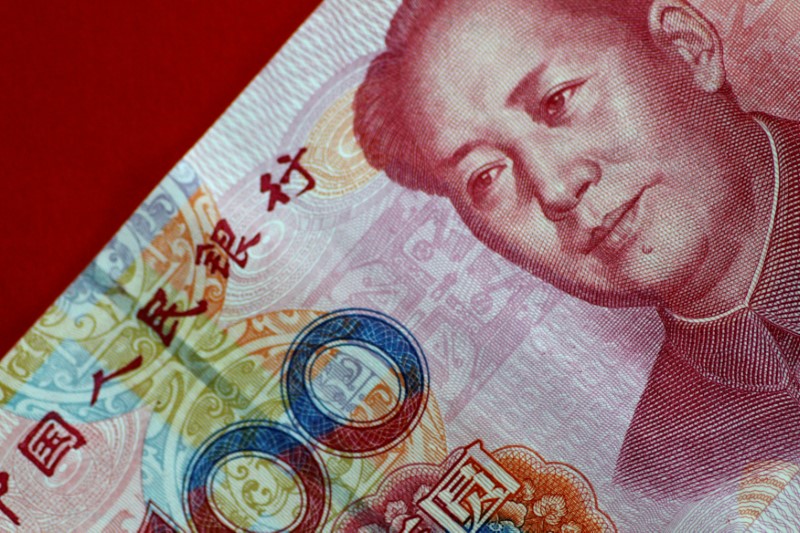By Stella Qiu and Kevin Yao
BEIJING (Reuters) - Chinese lenders extended more credit than expected in June, as home lending stayed buoyant while a clampdown on shadow financing activities forced banks to shift more loans onto their books.
Beijing has tightened the screws on financial risks due to an explosive growth in debt but has injected substantial liquidity at times to avoid a crunch and maintain stability.
The stronger-than-expected loans suggest authorities are keeping up support for the real economy, even as they tighten regulations to force banks to deleverage, said Nie Wen, an economist at Hwabao Trust in Shanghai.
"The shadow banking sector is shrinking but credit for the real economy remains strong," he said.
Chinese banks extended 1.54 trillion yuan ($226.9 billion) in net new yuan loans in June, well above analysts' expectations of 1.2 trillion yuan, up from 1.11 trillion in May.
Household loans, mostly mortgages, rose to 738.4 billion yuan in June from 610.6 billion yuan in May, according to Reuters calculations based on the central bank's data.
Household loans accounted for 48 percent of total new loans last month, down from 55 percent in May.
Broad M2 money supply, which includes demand deposits and monies held in easily accessible accounts, grew 9.4 percent in June from a year earlier, slowing from 9.6 percent in May, data showed. Economists expected 9.5 percent growth.
The slower M2 growth, the central bank said last month, could be a "new normal" after May's reading fell to the slowest since records began in 1996, with analysts saying Beijing is having some success with financial deleveraging.
DELEVERAGING DRIVE
Growth in outstanding yuan loans was flat at 12.9 percent by month-end, although faster than forecasts of 12.7 percent.
Total social financing, a broad measure of credit and liquidity in the economy, rose to 1.78 trillion yuan in June from 1.06 trillion yuan in May, the data showed.
The effects of the government's multi-pronged crackdown are showing up in weakened off-balance sheet financing, or shadow banking activity.
Combined trust loans, entrusted loans and undiscounted banker's acceptances, which are common forms of shadow banking activity, dipped to 428.8 billion yuan in the second quarter from 2.05 trillion yuan in the first quarter, according to Reuters calculations.
Some analysts said the pick-up in new loans may be masking a slowdown in overall credit growth.
"While we think the PBOC is now done pushing up interest rates, we expect the monetary tightening that has already taken place to continue weighing on credit growth from some time," Julian Evans-Pritchard, China Economist, Capital Economics said in a report.
Policy insiders say China's central bank will hold off on further monetary policy tightening and could even slightly loosen its grip in coming months as a deleveraging drive threatens economic growth and job creation ahead of a leadership reshuffle
The PBOC has reiterated that it would continue to implement a prudent and neutral monetary policy, and keep liquidity in the country's financial system basically stable in its quarterly monetary policy committee meeting.
China's banks extended a record 12.65 trillion yuan in loans in 2016 as the government encouraged credit-fueled stimulus to meet its economic growth target.

The credit explosion has stoked worries about financial risks from a rapid build-up in debt, which authorities have pledged to contain this year.